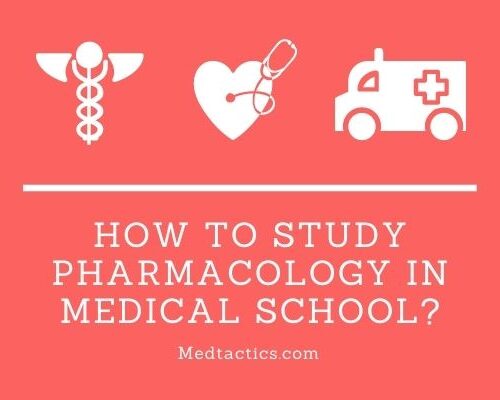Top Study Tips for Pharmacy Students: How to Ace Your Pharmacy School Exams
As a pharmacy student, preparing for exams can be challenging, but with the right study tips and techniques, you can set yourself up for success. In this article, we’ll explore some essential strategies to help pharmacy students excel in their studies and effectively prepare for their pharmacy school exams.
Study Tips for Pharmacy Students
When studying pharmacy, it’s crucial to establish a study schedule that works for you. Developing a study schedule allows you to allocate dedicated time for each subject, ensuring comprehensive coverage of the material. This helps to prevent falling behind and reduces the need to cram for exams, promoting better retention of information.
Developing a Study Schedule
Creating a structured study schedule can provide the necessary discipline to stay on track with coursework, especially in a demanding program such as pharmacy school. By allocating specific study times for different subjects, pharmacy students can effectively manage their study time and avoid last-minute study sessions before exams.
Effective Time Management Techniques
Effective time management is essential for pharmacy students. Utilizing time management techniques such as prioritizing tasks, setting achievable goals, and minimizing distractions can significantly enhance study productivity. Moreover, implementing strategies to maximize study time, such as the Pomodoro technique or time-blocking, can optimize focus and retention of study materials.
Utilizing Study Groups and Resources
Collaborating with peers in study groups can be a valuable resource for pharmacy students. Sharing study materials, discussing complex topics, and quizzing each other can enhance comprehension and retention of course material. Additionally, leveraging study resources such as flashcards, study guides, and practice tests can provide a diverse range of study materials to support a comprehensive understanding of pharmacy-related concepts.
Preparation for Pharmacy School Exams
As a pharmacy student, preparing for exams requires careful planning and effective study strategies. Understanding the exam format and content is crucial for success, and utilizing study guides and practice exams can help in comprehensive preparation. Managing test anxiety and stress is also essential for performing well during exams.
Understanding the Exam Format and Content
It’s important for pharmacy students to familiarize themselves with the format and content of their exams. This includes understanding the types of questions that may be asked, the weighting of different topics, and the time constraints. By getting a clear picture of what to expect, students can tailor their study approach to address the specific requirements of their exams.
Utilizing Study Guides and Practice Exams
Study guides and practice exams are invaluable resources for pharmacy students. Study guides provide a structured overview of the material, while practice exams enable students to simulate exam conditions and assess their readiness. By utilizing these resources, students can identify areas for improvement and focus their studies on the most relevant content.
Managing Test Anxiety and Stress
Test anxiety and stress can impact performance during exams. Pharmacy students can employ various strategies to manage these challenges, such as practicing relaxation techniques, maintaining a positive mindset, and ensuring adequate rest and self-care. By addressing test anxiety and stress, students can approach their exams with confidence and clarity of mind, optimizing their performance.
Pharmacy-Specific Exam Tips
As a pharmacy student, preparing for exams can be challenging, but with the right study tips and techniques, you can set yourself up for success. In this article, we’ll explore some essential strategies to help pharmacy students excel in their studies and effectively prepare for their pharmacy school exams.
Strategies for PTCB and NAPLEX Exams
Preparing for exams such as the PTCB and NAPLEX requires a comprehensive understanding of the exam format and content. Familiarizing yourself with the types of questions, time constraints, and key concepts tested is essential for success. Utilizing study guides and practice exams tailored to these specific exams can help you grasp the material and assess your readiness, ultimately boosting your confidence as you approach the actual exams.
Pharmacology and Patient Care Focus
Pharmacology and patient care are fundamental components of pharmacy studies. When studying for pharmacy exams, it’s crucial to immerse yourself in these areas. Understanding essential pharmacological concepts and patient care practices not only helps in acing your exams but also lays a solid foundation for your future career as a pharmacist. By prioritizing these focus areas in your study plan, you can develop a deep understanding of the material and build the skills necessary for success in the field.
Utilizing Study Groups, and Resources
Collaborating with peers in study groups can be a valuable resource for pharmacy students. Sharing study materials, discussing complex topics, and quizzing each other can enhance comprehension and retention of course material. Additionally, leveraging study resources such as flashcards, study guides, and practice tests can provide a diverse range of study materials to support a comprehensive understanding of pharmacy-related concepts.
Enhancing Comprehension with Peer Collaboration
Participating in study groups offers the opportunity to engage in peer collaboration, which can enhance comprehension of challenging course material. In these groups, students can share different perspectives, clarify misconceptions, and collectively explore complex topics, leading to a more robust understanding of the subject matter. Furthermore, the act of explaining concepts to others within the study group can reinforce one’s own understanding of the material.
Maximizing Study Resources
Availing study resources like flashcards, study guides, and practice tests is crucial for comprehensive exam preparation. Flashcards aid in quick recall of essential concepts, study guides provide an organized overview of the coursework, and practice tests help in assessing one’s grasp of the material. By diversifying study materials, pharmacy students ensure a well-rounded understanding of the subject, bolstering their confidence and readiness for exams.
Effective Utilization of Study Resources
When utilizing study resources, it’s imperative to understand their benefits and align them with specific learning objectives. For instance, flashcards are ideal for memorizing key facts and definitions, while study guides offer a structured approach to reviewing complex topics. Incorporating practice tests into the study plan allows students to evaluate their progress and identify areas that require further attention, ultimately contributing to a more effective and efficient study process.
FAQs
Q: How should I study for the pharmacy school exams?
A: One of the best techniques is to start early and study consistently. Try organizing your study material and breaking it down into manageable chunks. Incorporate frequent review sessions, engage in group discussions, and apply what you learn in a practical sense as these strategies can help you understand the subject better. Be sure to do practice questions regularly as this can prepare you for the type of exam questions you may encounter.
Q: What study techniques should every pharmacy student know?
A: Here are 7 study tips every pharmacy student should know: 1. Create a study schedule 2. Break your study into smaller steps 3. Use visual aids 4. Do regular review sessions 5. Engage in group discussions 6. Do lots of practice questions 7. Maintain a healthy lifestyle for optimal brain function. Remember, effective learning is a seamless blend of various strategies so use a combination of these techniques to enhance your understanding.
Q: How can I improve my performance on exams in pharmacy school?
A: Familiarize yourself with the format of the exam. You can do this by solving previous exam questions or using guide books. Developing a strong understanding of the material should be your main focus. Try to understand concepts fully instead of just memorizing facts. Also, ensure to get plenty of rest before the exam, effective time management can lead to increased performance.
Q: When should I start to study the material for my first exam in pharmacy school?
A: Ideally you should begin studying as soon as you receive your syllabus or learning outcomes. Starting early will ensure that you are adequately prepared and have fully understood the material ahead of your first exam. You’re more likely to remember what you’ve learned if you study it over a longer period of time.
Q: What are some important tips to help me prepare for my pharmacy technician exam?
A: Make good use of study guides, they usually include valuable practice questions. Regularly testing yourself instead of just reviewing the material can significantly improve your recall. Also, going through the guidelines provided by the Pharmacy Technician Certification Board can help you understand the type of questions that can come up in the exam and how to approach them.
Q: How can I become a certified pharmacy technician?
A: To become a certified pharmacy technician, you need to pass the exam set by the Pharmacy Technician Certification Board or your state board of pharmacy. Make sure to prepare well with a study schedule and taking practice tests to get a feel for the exam format. After successfully passing the exam, you’ll receive certification which will boost your credibility in the field.
Q: What are some of the most effective ways to study for a pharmacist exam?
A: First, understand the layout and format of the exam. Get to know the type of questions that will be asked and the areas they will cover. Make a schedule to study the material and stick to it, try to understand the topics instead of rote learning. You can also form study groups for collaborative learning and make use of any practice questions available.
Q: How important is learning how to study in pharmacy school?
A: Learning how to study efficiently and effectively is extremely crucial in pharmacy school. It is integral to manage your time well and understand how to break down complex topics into comprehensible chunks. Mastering these study skills can greatly impact your ability to retain and apply knowledge, which is paramount as a pharmacy student and future pharmacist.
Q: I am a pharmacy technician, what should I do if I want to study further?
A: If you’re a pharmacy technician looking to advance in the field, you may want to consider studying further to become a pharmacist. Start by researching schools offering a Doctor of Pharmacy program, understand the course requirements and prepare to meet them. At the same time, continue working on your professionally relevant skills and keeping up-to-date with the pharmacy sector.
Q: How should I study the material for pharmacy technician certification board exams?
A: Have a systematic approach towards your studies. Begin by understanding the exam pattern and structure of the Pharmacy Technician Certification Board exams. Use a varied mix of study tools such as study guides, flashcards, and interactive quizzes. Practice questions are very important for understanding the type and format of questions which are likely to be asked.






Leave A Comment